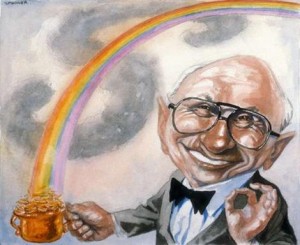 Opponents of the Patient Protection Act label it socialized medicine. They argue that the health care industry will perform at its best when government involvement is reduced to zero. Free market/neoliberal ideas are behind much of climate change denial and opposition: Let the various sectors of the energy industry compete, and may the most profitable one win. Republicans newly elected to Congress want to cut government down to size on all fronts.
Opponents of the Patient Protection Act label it socialized medicine. They argue that the health care industry will perform at its best when government involvement is reduced to zero. Free market/neoliberal ideas are behind much of climate change denial and opposition: Let the various sectors of the energy industry compete, and may the most profitable one win. Republicans newly elected to Congress want to cut government down to size on all fronts.
Similar arguments these days are behind much of the West’s current criticism of China: China does not engage in free trade; it practices state capitalism rather than market capitalism; the government invests in the country’s industries, which puts its competitors at a disadvantage. China must follow our example if it wants to play in the free world market.
In an article in the New Yorker, John Cassidy points out the hypocrisy of such complaints. Great Britain went to war with China over trade policy (the Opium Wars), and the US has a long history of using tariffs to protect its industries.
The fact is that not one of today’s economic powers practiced free trade during its developmental state. “Free trade economists have to explain how free trade can be an explanation for the economic success of today’s rich countries,’ [Ha-Joon] Chang notes, ‘when it simply had not been practiced very much before they became rich.”
He quotes Stephen D. King, author of Losing Control: The Emerging Threats to Western Prosperity.
Western governments have used the methods of state capitalism for hundreds of years in their bid to shape the world around them. … The idea that market forces alone led to the West’s success is nonsense.
Those who ignore history …
Cassidy’s article focuses on the history of free trade, but his conclusions speak to current US debates on health care and climate change. (emphasis added)
The heavy-hand of American domestic and foreign policy in shaping economic outcomes tends to get ignored in current policy debates, in which economic issues are usually cast in ideological terms, devoid of their historical context. Yet our amnesia comes with a cost: the idealized free-market model that is supposedly under threat offers only the harshest of solutions to the energy problem. If demand for oil continues to soar in the face of limited supply, prices will eventually skyrocket, forcing the United States and other oil importers to cut drastically their consumption of gasoline. There’s an alternative to this market-administered shock therapy: a vigorous energy policy that raises taxes on carbon fuels, subsidizes energy conservation, and provides cheap financing for the development of renewable energy sources. But a major obstacle to such a policy is the popular misconception about the role of the state in economic development. …
Unfortunately, in policy circles – and among much of the general public – the old mantras about the free market and private enterprise continue to dominate. In seeking to broaden access to private health insurance, the Obama Administration was accused of plotting a takeover of the entire health-care industry. In cutting taxes and boosting federal spending to avert a depression, it was accused of embracing socialism. Even supposedly serious economists lend support to these views, arguing that the dysfunctional health-care industry is best left to its own devices, or that the eight-hundred-billion-dollar stimulus program has had virtually no impact on jobs and on G.D.P. This is what comes of forgetting the critical role that states have played in nurturing, protecting, and financing their industries, as well as in taxing and taming them. The greatest danger that Western prosperity now faces isn’t posed by any Beijing consensus; it’s posed by the myth of the free market.
Unfortunately we seem determined ignore history, willing to take our chances with the consequences.
Related posts:
Merchants of Doubt
The politics behind personal responsibility for health
Healthy lifestyles serve political interests
Why the US doesn’t have universal health care
Resources:
Image: The Age
John Cassidy, Enter the Dragon: Why “state capitalism” is China’s biggest knockoff, The New Yorker, December 13, 2010 (subscription required)


Sorry, comments are closed for this post.